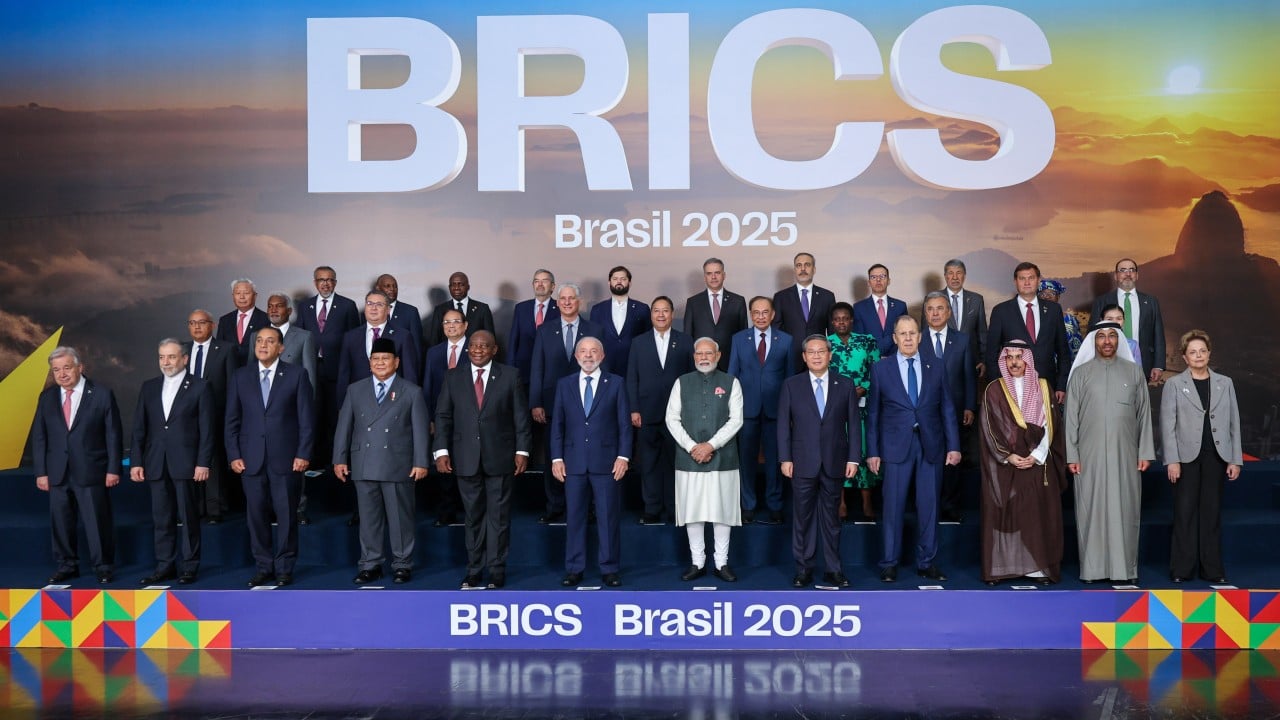Even as internal divisions and absent leaders hung over proceedings, this week’s Brics summit in Brazil delivered an unmistakable message: the world’s emerging economies are intent on shaping their own destiny, seeking consensus where once there was only Western dominance.
Advertisement
In a joint declaration adopted on Sunday, Brics leaders warned of the threat posed to the global economy by the “indiscriminate” use of tariffs and “proliferation of trade-restrictive actions” – thinly veiled references to US President Donald Trump’s signature trade policy – while also condemning the recent American and Israeli military strikes on Iran.
The 10-member bloc – which includes founders such as China, Russia and India, as well as newer entrants like Iran, Egypt and Indonesia – today represents nearly half the world’s population and accounts for roughly 40 per cent of global economic output.
Conceived two decades ago as a forum for rapidly expanding economies, Brics has evolved into what many now view as a Chinese-led counterweight to the Western order.
The test is whether the grouping agrees on much more than it disagrees
Observers point to Sunday’s joint declaration as evidence that Brics could yet become “an alternative structure to a US-led world order”, cautioning that the group’s growing diversity is also its greatest challenge.
Advertisement

